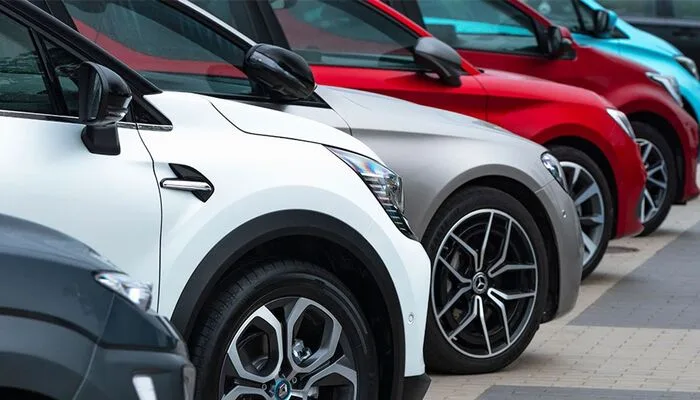Special Assistant to the Prime Minister on Industries and Production, Haroon Akhtar Khan, has officially launched Pakistan’s National Electric Vehicle (NEV) Policy 2025–30. The announcement was made during a press conference held with Secretary Saif Anjum and Engineering Development Board CEO Engr. Khuda Bukhsh.
Haroon Akhtar said the policy supports the Prime Minister’s vision of sustainable, clean, and affordable transportation. He emphasized that Pakistan’s transport sector is a major contributor to carbon emissions, and reform in this area is essential.
The new EV policy aims to ensure that 30 percent of all new vehicles sold in the country by 2030 are electric. This shift is expected to save 2.07 billion liters of fuel per year, which translates to nearly one billion dollars in foreign exchange savings. In addition, the policy will reduce carbon emissions by 4.5 million tons and cut healthcare-related expenses by 405 million dollars annually.
Subsidy Announced for Electric Vehicles and Women’s Mobility
The government has allocated an initial subsidy of 9 billion rupees for the fiscal year 2025 to 2026. Under this package, 116,053 electric bikes and 3,171 electric rickshaws will be introduced. A quarter of this subsidy has been set aside for women, aiming to provide them with safer and more affordable transportation options.
Read: Iran Faces 60-Hour Internet Blackout Amid Conflict Escalation
Over the next five years, a cumulative subsidy of more than 100 billion rupees is projected, with 25 percent consistently reserved for women. A fully digital platform will be used for application, verification, and disbursement of subsidies to ensure transparency.
Currently, 61 licenses have been issued for the manufacturing of electric motorbikes and three-wheelers, while two licenses have been granted for electric vehicle production.
To further promote local industry, the government will offer special support packages to small and medium enterprises. At present, over 90 percent of the parts used in electric two- and three-wheelers are manufactured locally.
Infrastructure, Battery Swapping, and Accountability Measures
The policy includes the installation of 40 EV charging stations on motorways, spaced approximately every 105 kilometers. It also introduces new initiatives like battery swapping systems, vehicle-to-grid integration, and the inclusion of EV charging points in building codes.
The Automotive Industry Development and Export Plan tariff facility will continue until 2026 and gradually phase out by 2030.
Haroon Akhtar stated that the policy has been developed in consultation with over 60 experts, institutions, and industry stakeholders. A steering committee, formed in September 2024 under the Ministry of Industries and Production, will conduct monthly and quarterly reviews. The Auditor General of Pakistan will perform performance audits every six months.
He concluded by saying the NEV Policy 2025–30 is not only an environmental milestone but also a step toward industrial growth, energy efficiency, employment, and technological independence.
Follow us on Instagram, YouTube, Facebook,, X and TikTok for latest updates
